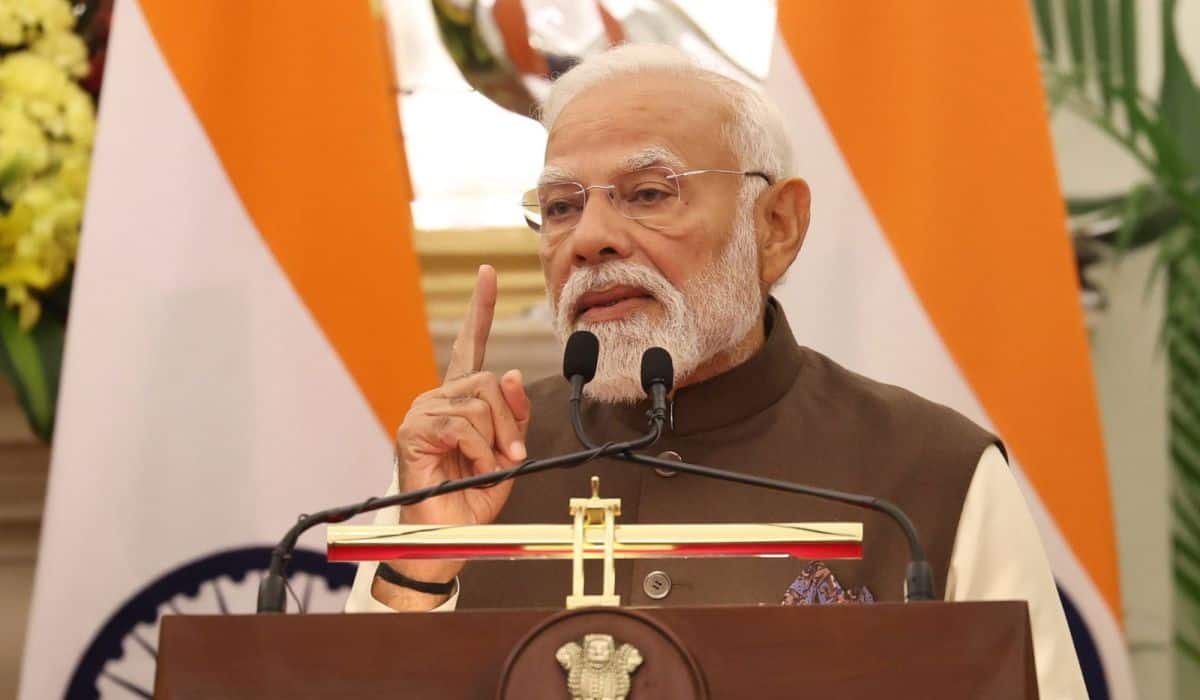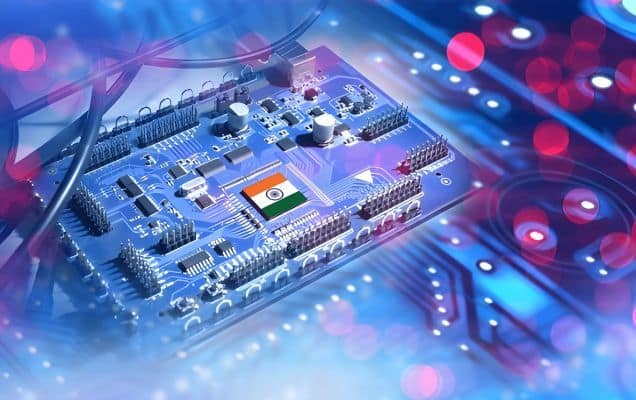The Prime Minister, Shri Narendra Modi, today (March 30, 2016) addressed the Indian Community in Brussels. He described the Indian Community as the “Lokdoot” of India.
The Prime Minister recalled the horrendous terror attack in Brussels last week, and offered condolences to the families of the victims. He described terrorism as a challenge to humanity. He said the need of the hour is for all humanitarian forces to join hands to fight it.
The Prime Minister said that despite the huge threat, the world is not able to deliver a proportionate response to terror – and terms such as “good terrorism” and “bad terrorism” end up strengthening it. Shri Narendra Modi described how India has faced this scourge for forty years, which many described as a mere law and order problem for a long time, until 9/11 happened. He declared that India would not bow to terror. Shri Narendra Modi said he has spoken to many world leaders and emphasized the need to delink religion from terror. He recalled the Global Sufi Conference in New Delhi recently, where liberal Islamic scholars had denounced terrorism. He said this approach was essential to stop radicalization. The right atmosphere had to be created to end terror, he added.
The Prime Minister regretted that the United Nations had not been able to come up with a structured response to terrorism. He said the UN has not been able to fulfill its responsibility in this regard, and had not come up with a suitable resolution. He warned that institutions which do not evolve appropriate responses to emerging situations, risked irrelevance.
The Prime Minister also mentioned that the whole world which is passing through an economic crisis, had recognized India as a ray of hope. He said India has become the fastest growing large economy in the world, and this is not because of good fortune. He said this has happened despite two successive drought years. He said that this is the result of good intentions and sound policies. Talking about 2015, the Prime Minister said he wished to give an account of the work done by the Government. He mentioned ethanol blending of petrol, and ending urea shortages through enhanced production, and neem coating.

He said poor had been provided LPG connections in large numbers. He said this was largely due to the give-it-up campaign for the well-off to surrender their LPG subsidy, and 90 lakh people had done so. He also mentioned Union Budget commitments in this regard.
He said that maximum production of power and coal also happened in 2015. He said that investment in Railways has been enhanced substantially, because he believes that the Railways can be the spine of the Indian economy. He said car production and software exports had also reached maximum numbers in 2015.
He said 21 crore new bank accounts have been opened, as part of the financial inclusion drive. The Prime Minister explained how the concept of “Jandhan Aadhar Mobile” (JAM) had helped reduce corruption and leakages in LPG subsidy. He said over 18,000 villages had remained unelectrified after nearly seven decades of Independence, and he had promised to have them electrified within 1000 days. He expressed satisfaction that over 7000 such villages had been electrified till now. He also mentioned pick up in the pace of road construction. He said the whole world was surprised when he had declared a target of 175 GigaWatts of renewable energy, but the country was now on track to achieve it. He said the commitment to deliver One Rank, One Pension for the Armed Forces had also been fulfilled.

The Prime Minister said the Land Boundary Agreement with Bangladesh was an example of how contentious issues could be resolved peacefully. He mentioned the Narendra Modi App, and suggestions he had received on India-Belgium relations.
The Prime Minister also mentioned recent decisions taken for the benefit of NRIs
So many nations have suffered due to terrorism. Terrorism is not a challenge to a nation, it's a challenge to humanity: PM @narendramodi
— PMO India (@PMOIndia) March 30, 2016
India has been troubled by the menace of terrorism for years: PM @narendramodi https://t.co/Iy8hu3Nre5
— PMO India (@PMOIndia) March 30, 2016
There is no question of bending in front of terrorism: PM @narendramodi at the community programme in Brussels https://t.co/Iy8hu3vQmx
— PMO India (@PMOIndia) March 30, 2016
Have always said we need to delink terrorism & religion. No religion teaches terrorism: PM @narendramodi https://t.co/Iy8hu3vQmx
— PMO India (@PMOIndia) March 30, 2016
When we assumed office we discovered that there is no electricity in about 18,000 villages. Is this proper: PM @narendramodi
— PMO India (@PMOIndia) March 30, 2016
In a time when the world economy is not doing so well, it is generally agreed that India is a ray of hope: PM @narendramodi in Brussels
— PMO India (@PMOIndia) March 30, 2016
There is an App- Garv which tells you about rural electrification: PM @narendramodi in Brussels #GarvSe
— PMO India (@PMOIndia) March 30, 2016
For years OROP was promised but even when an allotment was made, it was a token amount. We changed this: PM @narendramodi in Brussels
— PMO India (@PMOIndia) March 30, 2016
So many people shared their ideas on the Narendra Modi App. And they are very keen to see stronger India-Belgium ties: PM @narendramodi
— PMO India (@PMOIndia) March 30, 2016
Community event begins with a minute's silence in memory of the victims of the Brussels terror attack pic.twitter.com/1btTUtfG60
— Vikas Swarup (@MEAIndia) March 30, 2016
PM @narendramodi begins address by paying tribute to the victims of the barbaric terror attacks in Brussels pic.twitter.com/CMDmSCuKyB
— Vikas Swarup (@MEAIndia) March 30, 2016
PM : Terrorism is a challenge to humanity. The entire world must unite to combat it. pic.twitter.com/aY3gUhQJaV
— Vikas Swarup (@MEAIndia) March 30, 2016
PM @narendramodi: India has been battling terrorism for four decades. But the rest of the world recognized the danger only after 9/11.
— Vikas Swarup (@MEAIndia) March 30, 2016
PM:Terrorism must be delinked from religion. No religion teaches terrorism. This message resonated from the World Sufi Forum held in Delhi
— Vikas Swarup (@MEAIndia) March 30, 2016
PM @narendramodi : India is the lone light of hope amidst the global recession; fastest growing economy in the world pic.twitter.com/49fHVVkOx8
— Vikas Swarup (@MEAIndia) March 30, 2016
PM: Our decision to have 5% ethanol in petrol led to record production of ethanol in 2015 leading to better income for farmers
— Vikas Swarup (@MEAIndia) March 30, 2016
PM :Our campaign on gas subsidy led to 9 million people surrendering their subsidy, helping millions of poor families to get gas connections
— Vikas Swarup (@MEAIndia) March 30, 2016
PM @narendramodi : There was record output of coal in 2015. Also record production of electricity and record cargo handled at major ports
— Vikas Swarup (@MEAIndia) March 30, 2016
PM @narendramodi : There was record production of milk in 2015. Also maximum investment in rail infrastructure. pic.twitter.com/AMaxZlJaKa
— Vikas Swarup (@MEAIndia) March 30, 2016
PM @narendramodi: Our Jan Dhan Yojana has led to 210 million new accounts, bringing millions into the banking sector
— Vikas Swarup (@MEAIndia) March 30, 2016
PM:18000 villages in India are still without electricity. We will bring them electricity within 1000 days.7000 have already been electrified
— Vikas Swarup (@MEAIndia) March 30, 2016
PM @narendramodi: Our target of 175 GW of renewable energy is achievable. We are making tremendous advances in solar energy.
— Vikas Swarup (@MEAIndia) March 30, 2016
PM@narendramodi :We managed to resolve the Land Boundary Agreement with Bangladesh which had been pending fr decades pic.twitter.com/L9vuffJaI0
— Vikas Swarup (@MEAIndia) March 30, 2016
PM @narendramodi outlines the new benefits available to NRIs. Our community now feels connected with our Embassies pic.twitter.com/PQVRM2Cfa3
— Vikas Swarup (@MEAIndia) March 30, 2016














